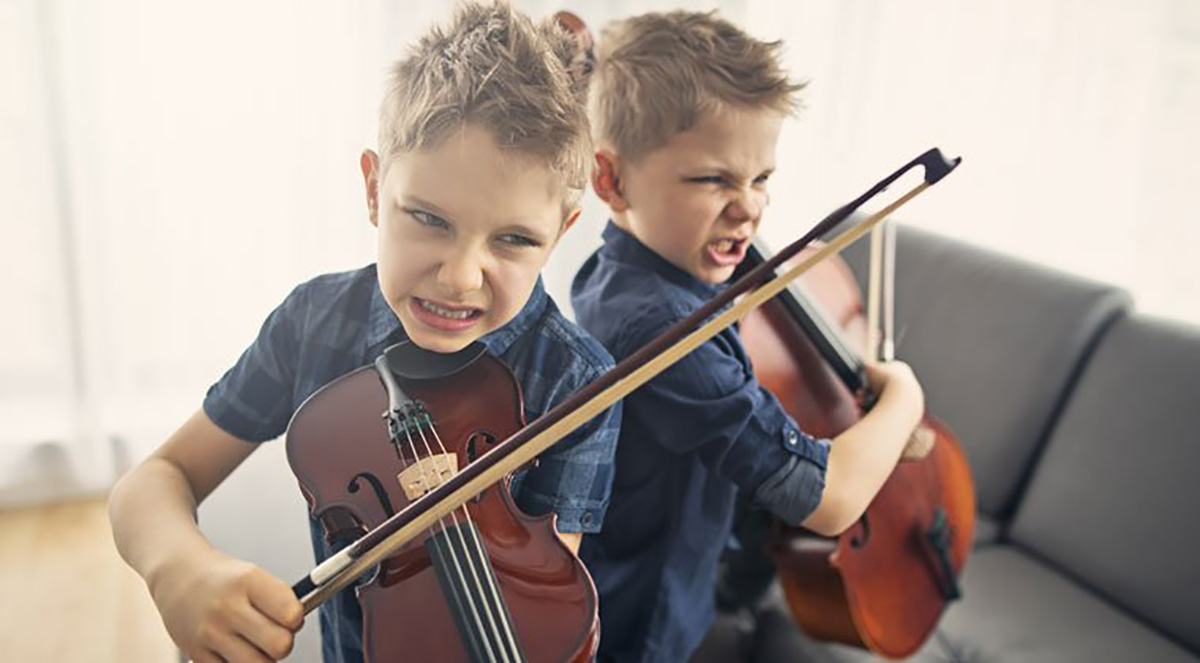Is Music Practice really that important
Learning a musical instrument would be a lot easier without it! Also, there would be far more time to do other things, and besides, my kids have music lessons already… That covers it, right?! Jack Blakey, the founder of music practice agency Jacktice and Friends gives a little insight into why music practice is so important and how to make it more enjoyable for your child.
Why practice at all?
I would go as far to say that practice is the MOST important facet of learning an instrument! A music practice session continues the work started by your child’s teacher at school so that your child can really get the most out of learning an instrument. This means that real progress can be made between lessons. With progress comes confidence and a huge sense of achievement and a desire to get even better! When you are really good at something, you want to continue doing it! How many adults do you know that gave up music lessons because they were bored and deflated and regret it later in life?
Practice (or lack of it) is often the reason for this and also the hardest part of learning any instrument. There is never enough time, never an easy way to learn scales, and as a parent, it is always very difficult to understand what specific technical ‘thing’ the teacher of your child has asked them to execute.
The Problems
In my career as a musician and a teacher, the number of my pupils who don’t practice correctly (or at all) is staggering. This however, is not anyone’s fault. You cannot expect parents, unless they are trained musicians, to know anything about how to structure a practice session, as this is something that takes many years to achieve. To expect a student to complete efficient practice at home on their own is also unrealistic as they have simply not been alive long enough to acquire this skill. With little or no practice between lessons at school the pressure put on one teacher to achieve results in exams and teach the theory, scales, pieces, as well as train the students’ musical ears and teach them to play well in an ensemble setting in the 30 minutes a-week they have with them is an also an unattainable goal.
The Solutions
They might seem simple, but just adding ONE thing can make a huge impact on your rate of progress and ultimately enjoyment over the long term…
- Little and often – 15 minutes every day is better than an hour once a week!
- SLOW THINGS DOWN – If there are things your child is finding difficult then isolate it, slow it down and GRADUALLY speed it back up.
- Don’t be afraid to go right back to the basics – for example on piano, play a phrase or piece with the right hand on its own if needed!
- If you’re having a bad day and getting nowhere and frustrated you can’t play as well as you have been doing (yes, it happens), then just stop and come back to it tomorrow.
- Make sure you practice things you aren’t good at – I know scales and sight reading are boring but these act as exercises for your technique and WILL make you a much, much better player… especially sight reading I am afraid.
These are the 5 main things to think about! The tricky bit is making them fun and exciting and enjoyable! If you can achieve that then there is no upper limit to what your young musician can achieve.
A bit about Jacktice and Friends
Jacktice and Friends is a practice supervision service that provides fun, inspiring music specialists to make sense of a practice session. A few Jacktice sessions each week will see your child progress on any instrument rapidly while also avoiding those arguments about practice every evening, allowing you to hear the results very quickly without any real struggle. So, whether it be preparing for an exam, exploring a genre of music, or just making the most of the individual lessons your child has, Jacktice will allow them to realise their musical potential, and most importantly, make learning an instrument as fun as it should be.
We focus on so many areas to create a good instrumentalist. Technique, musicianship, creating the correct practice environment, as well as the ones listen in this article. We have helped countless people and their kids to become an excellent, confident instrumentalist!
Here are just a few of the testimonials we have received:
- “I would recommend Jacktice to anyone.”
- “it has transformed how our children approach their music practice.”
- “she achieved a distinction in her exam. A few weeks before, that seemed impossible.”
- “He always comes out of it buzzing with excitement about his music”
- “I can’t recommend Jacktice highly enough.”
- “It was the best thing we have done”
- “he achieves a huge amount in every short session. The improvement in my boys’ playing has been amazing.”
So how does it work?
We send a practice supervisor round 1, 2, or 3 times a week (depending on your preference) and we help your child practice to implement what their teacher has taught them during the week so they can go to their next lesson completely prepared.
AND the first session is always FREE!
 Jack Blakey is a professional Trumpet/Flugelhorn/Piano player based in London as well as the CEO and Founder of Jacktice and Friends.
Jack Blakey is a professional Trumpet/Flugelhorn/Piano player based in London as well as the CEO and Founder of Jacktice and Friends.





